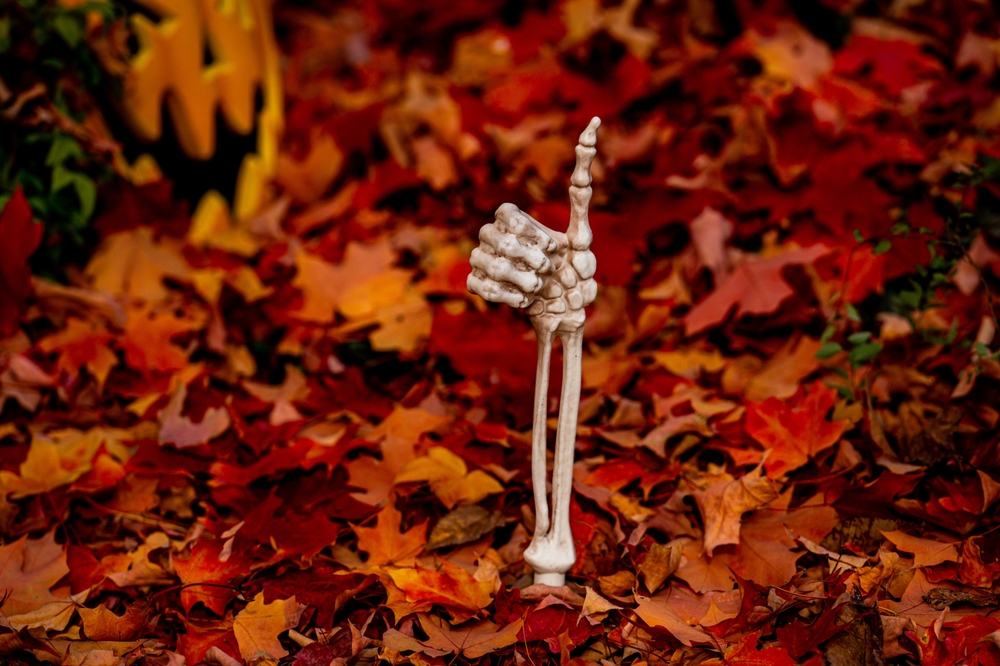Protect Your Home and Trick-or-Treaters This Halloween

Halloween can be a fun and festive time, but it also brings an increased risk of vandalism and accidents. Whether you're protecting your property or ensuring a safe night for trick-or-treaters, preparation is key. Here are some practical tips to keep your property and community safe this Halloween.
How to Avoid Property Vandalism from Trick-or-Treaters
Lock vehicles and buildings: Secure all doors and windows, including sheds and garages, to deter potential vandals.
Put away garbage: Trash cans and recycling bins left outside can become easy targets for pranks. Secure them inside or in a locked area.
Keep valuables out of sight: Don’t leave valuables visible inside cars or around your property.
Install home security cameras: Visible security cameras can discourage vandalism. If you already have them, ensure they’re working and positioned clearly.
Post security signage: Consider posting signs stating your property is under 24/7 surveillance to deter mischievous behavior.
Report suspicious activity: If you see anything out of the ordinary in your neighborhood, notify local authorities immediately.
Use Motion Sensor Lights: Bright lights that turn on when someone approaches can startle potential vandals and reduce the likelihood of damage.
Does home insurance cover vandalism from trick-or-treaters?
Luckily, both home and renters insurance typically cover vandalism, even if it happens during a high-traffic time like Halloween.
Most standard home insurance policies include coverage for vandalism as part of the "dwelling" or "personal property" coverage. This means if your home or belongings are damaged due to vandalism, you can file a claim for repairs or replacement, subject to your policy's deductible and coverage limits.
Renters insurance also generally covers personal belongings if they are damaged or destroyed by vandalism. While renters insurance does not cover the physical building (that's the landlord's responsibility), it does protect your possessions inside the rental unit.
In both cases, it's always important to review your policy and understand the limits, exclusions, and deductibles. Some policies may exclude coverage if the property is vacant for an extended period. If vandalism occurs during Halloween, documenting the damage, filing a police report, and notifying your insurer right away can help with the claims process.
How to provide a safe environment for trick-or-treaters
Ensure adequate lighting: Make sure pathways and entryways are well-lit so visitors can see where they are going.
Avoid open flames: Use LED lights instead of real candles in pumpkins or other decorations to reduce fire hazards.
Check decorative lights: Ensure your Halloween lights are in good condition, without exposed wires or broken sockets, to avoid electrical accidents.
Don’t overload extension cords: Too many devices on one cord can lead to overheating and potential fires.
Look out for tripping hazards: Keep pathways clear of obstacles and secure any loose decorations that could cause someone to trip.
Avoid common allergens: Label treats that may contain peanuts or other allergens or offer allergy-safe options like non-food treats.
Safety tips for trick-or-treaters
Supervise young children: Trick-or-treat with your kids until they’re old enough to go with friends. Set a clear route and rules if they are going alone.
Be mindful of costume flammability: Avoid costumes with long capes, skirts, or flowing fabric that could catch on fire near open flames.
Wear bright or reflective costumes: Dark costumes are harder to see at night, so choose brightly colored or reflective outfits to increase visibility.
Test Halloween makeup: Do a patch test of any face paint, glues, or other products the day before Halloween to avoid allergic reactions.
Skip cheap contact lenses: Low-quality contact lenses can be harmful, especially for children. Avoid them to prevent eye injuries.
Check costume accessories: Ensure any toys, fake weapons, or accessories are soft or flexible to prevent injuries during play.
Stay warm: October nights can be chilly, so make sure costumes can be layered to keep kids warm.
Watch for allergens and choking hazards: Be mindful of food allergies and avoid giving out small, hard candies that could be choking hazards for young children.
By following these tips, you can help make Halloween a safe and enjoyable experience for everyone while protecting your property from unwanted tricks.







